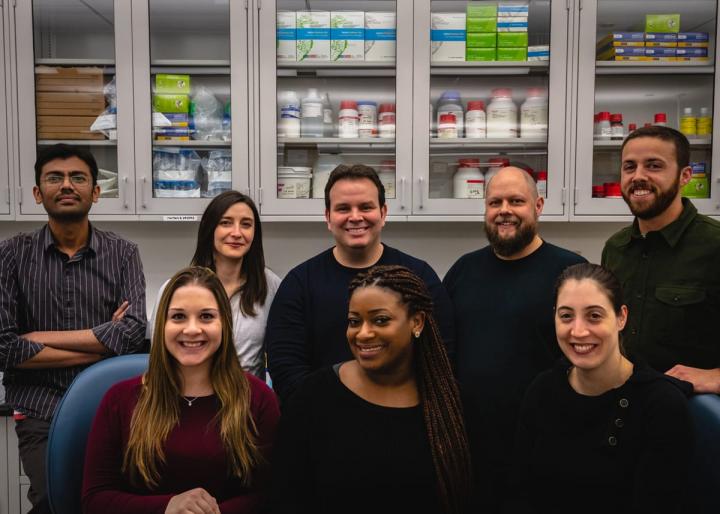The paper in Nature Communications could mean better treatment for leukemia, among other cancers

Credit: Hackensack Meridian Health
February 12, 2020, Nutley, NJ – Reversing runaway inflammation in the bone marrow could lead to major breakthroughs in treatments for some blood cancers, according to a new publication by scientists at Hackensack Meridian Health’s Center for Discovery and Innovation.
The CDI team’s findings could ultimately improve cancer treatments for people of advanced age, like that of adult acute myeloid leukemia (AML), as they indicate in the paper in the journal Nature Communications.
The study, published Feb. 3, demonstrates how endothelial (blood vessel lining) cells orchestrate inflammatory stress within the microenvironment of the bone marrow.
The scientists demonstrated the function of two connected pathways involved in myelosuppressive injuries (like those caused by chemotherapy), in which bone marrow activity decreases, leading to less blood cell production.
The myelosuppression leads to chronic activation of the mitogen-activated protein kinase (MAPK) pathway – causing local and systemic inflammation, in turn driven by the Nuclear factor-kB (NF-kB) signaling pathway. This chronic inflammation resulted in disruption of the integrity of blood vessels and functional defects to the hematopoietic stem cell.
Utilizing a genetic model to block the NF-kB dependent endothelial inflammation, led to the discovery of a novel protein, Stem Cell Growth Factor Alpha (SCGFa).
The SCGFa was tested, and the models’ data showed promise. The SCGFa preserved vascular function and promoted hematopoietic recovery and hematopoietic stem cell function when infused following myelosuppressive treatments, such as chemotherapy. The scientists were also able to tamp down the vascular and hematopoietic inflammation by the administration of SCGFa, which boosted the recovery following the inflammation.
“We showed that SCGFa could be used therapeutically, to allow recovery of these crucial systems following myelosuppression,” said Pradeep Ramalingam, the study’s lead author.
“The elderly population tend to do worse following cancer treatments that result in myelosuppressive injury, since their bodies can’t sustain as much chemotherapy as the young can,” said Jason Butler, Ph.D., an associate member of the CDI, and the senior author, whose work is also part of the Georgetown Lombardi Comprehensive Cancer Center’s National Cancer Institute-designated consortium. “But if we infuse patients with SCGFa, we may be able to protect their hematopoietic system and allow for rapid regeneration and rejuvenation of their bone marrow. This would allow us to potentially give patients more chemotherapy – and ultimately lead to better outcomes and lower relapse rates.”
Dr. Butler and his laboratory are currently working on exciting future directions for the work, including the direct effects of SCGFa on hematopoietic stem cells – and how SCGFa may enhance the homing, engraftment, and function of hematopoietic stem cells following bone marrow transplants.
“These studies will become important to understand the precise molecular mechanisms by which SCGFa enhances hematopoietic regeneration and to develop treatment strategies directed towards protecting the hematopoietic system and the (bone marrow) endothelial niche following myelosuppressive therapies,” the authors concluded.
###
Media Contact
Seth Augenstein
[email protected]
Related Journal Article
http://dx.




